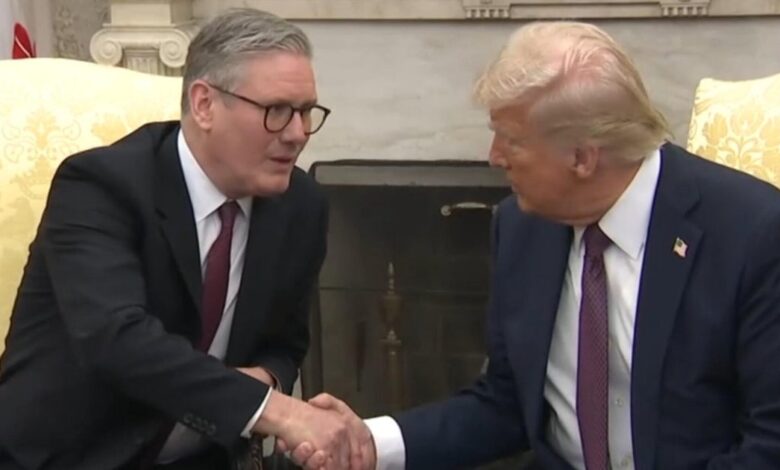Why the U.S.-U.K. trade deal may not be as good as it sounds

President Trump recently celebrated the new trade pact with the U.K. as a groundbreaking agreement that will serve as a model for future deals with other nations. However, experts have raised concerns about the implications of the U.K. agreement, particularly the indication that high tariffs are likely to remain in place for an extended period.
While some concessions were made in the deal with Britain, a 10% tariff on U.K. imports still remains in effect. This baseline levy, unveiled by Mr. Trump as part of his “Liberation Day” announcement, is intended to serve as a minimum import tax for other countries as well. Despite being lower than the tariffs imposed on other nations last month, such as China and the Democratic Republic of the Congo, the 10% rate is significantly higher than the pre-Trump administration tariff rate of 3%.
Economists have pointed out that while reducing the sweeping tariffs to 10% may provide some relief to U.S. businesses and consumers facing increased costs, it still poses a significant challenge for importers. These businesses are required to pay the duties on goods and often pass on the cost to consumers, potentially leading to higher prices and reduced consumer spending.
Scott Lincicome, Vice President of Economics at the Cato Institute, described the U.K. trade deal as a “modest improvement” but emphasized that most U.S. tariffs remain in place, making the current situation worse than the pre-Trump era. The economic impact of the ongoing trade talks is substantial, with economists warning of a recession due to the repercussions of Mr. Trump’s trade war.
Stocks experienced a modest increase following the announcement of the trade agreement with the U.K., suggesting growing investor optimism about future trade deals. However, public sentiment towards Mr. Trump’s policies remains mixed, with a significant portion of Americans expressing concerns about the impact of tariffs on the economy.
As the U.S. continues to negotiate trade agreements, businesses face ongoing uncertainty regarding the level and duration of tariffs, making it challenging to plan for the future. While some experts believe that new trade deals could provide relief to investors and businesses, clarity on tariff policies is essential for restoring confidence in the market.
The U.S. is set to engage in key meetings with China to discuss trade negotiations, with the possibility of lowering tariffs on Chinese goods. Despite potential tariff reductions, experts caution that the impact of higher tariffs, especially in comparison to historical rates, could still have significant repercussions on the economy.
Overall, while the Trump administration’s efforts to strike new trade deals offer some hope for economic stability, the long-term effects of tariffs and trade policies remain uncertain. Clarity and predictability in trade negotiations are essential for businesses to make informed decisions and for consumers to regain confidence in the economy.





